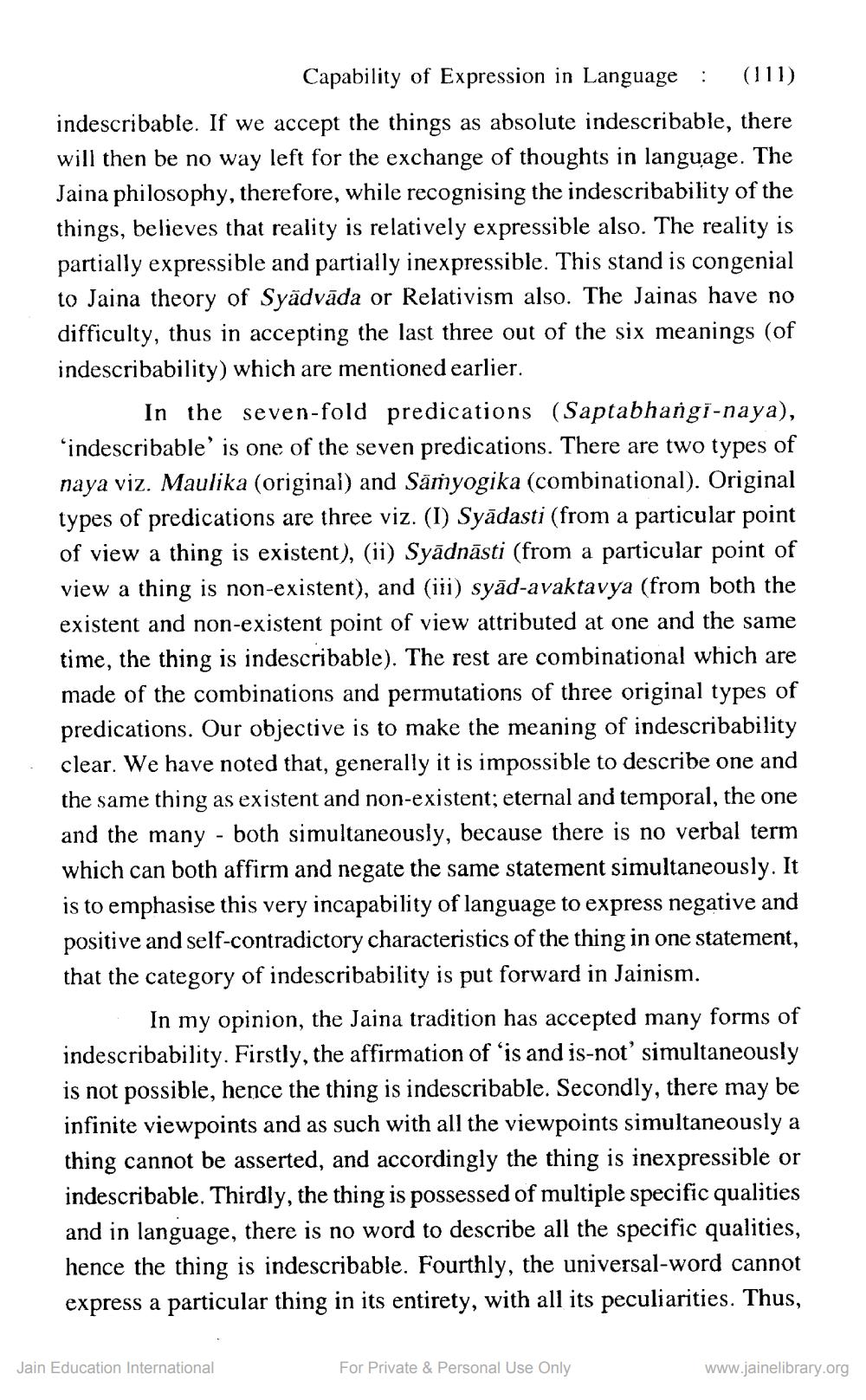________________
Capability of Expression in Language : (111) indescribable. If we accept the things as absolute indescribable, there will then be no way left for the exchange of thoughts in language. The Jaina philosophy, therefore, while recognising the indescribability of the things, believes that reality is relatively expressible also. The reality is partially expressible and partially inexpressible. This stand is congenial to Jaina theory of Syädvāda or Relativism also. The Jainas have no difficulty, thus in accepting the last three out of the six meanings (of indescribability) which are mentioned earlier.
In the seven-fold predications (Saptabhangi-naya), ‘indescribable' is one of the seven predications. There are two types of naya viz. Maulika (original) and Samyogika (combinational). Original types of predications are three viz. (I) Syādasti (from a particular point of view a thing is existent), (ii) Syādnāsti (from a particular point of view a thing is non-existent), and (iii) syād-avaktavya (from both the existent and non-existent point of view attributed at one and the same time, the thing is indescribable). The rest are combinational which are made of the combinations and permutations of three original types of predications. Our objective is to make the meaning of indescribability clear. We have noted that, generally it is impossible to describe one and the same thing as existent and non-existent; eternal and temporal, the one and the many - both simultaneously, because there is no verbal term which can both affirm and negate the same statement simultaneously. It is to emphasise this very incapability of language to express negative and positive and self-contradictory characteristics of the thing in one statement, that the category of indescribability is put forward in Jainism.
In my opinion, the Jaina tradition has accepted many forms of indescribability. Firstly, the affirmation of ‘is and is-not' simultaneously is not possible, hence the thing is indescribable. Secondly, there may be infinite viewpoints and as such with all the viewpoints simultaneously a thing cannot be asserted, and accordingly the thing is inexpressible or indescribable. Thirdly, the thing is possessed of multiple specific qualities and in language, there is no word to describe all the specific qualities, hence the thing is indescribable. Fourthly, the universal-word cannot express a particular thing in its entirety, with all its peculiarities. Thus,
Jain Education International
For Private & Personal Use Only
www.jainelibrary.org




